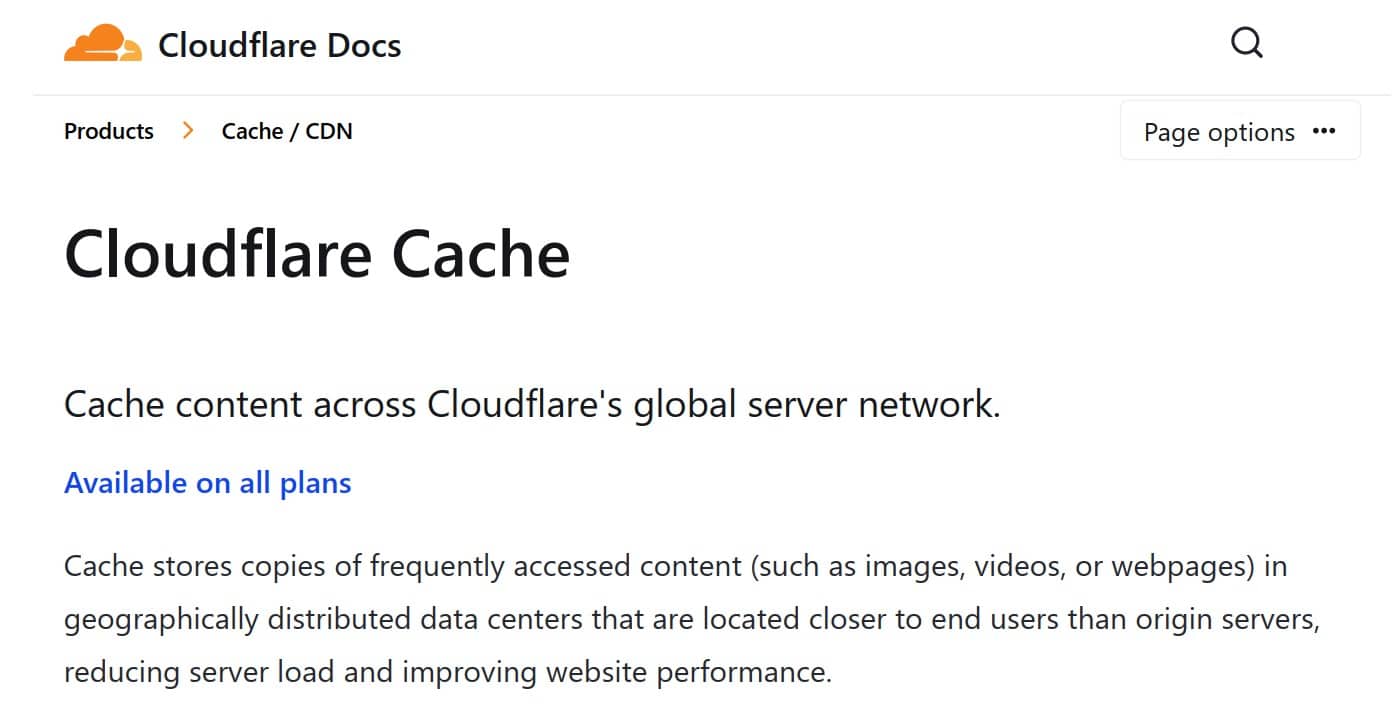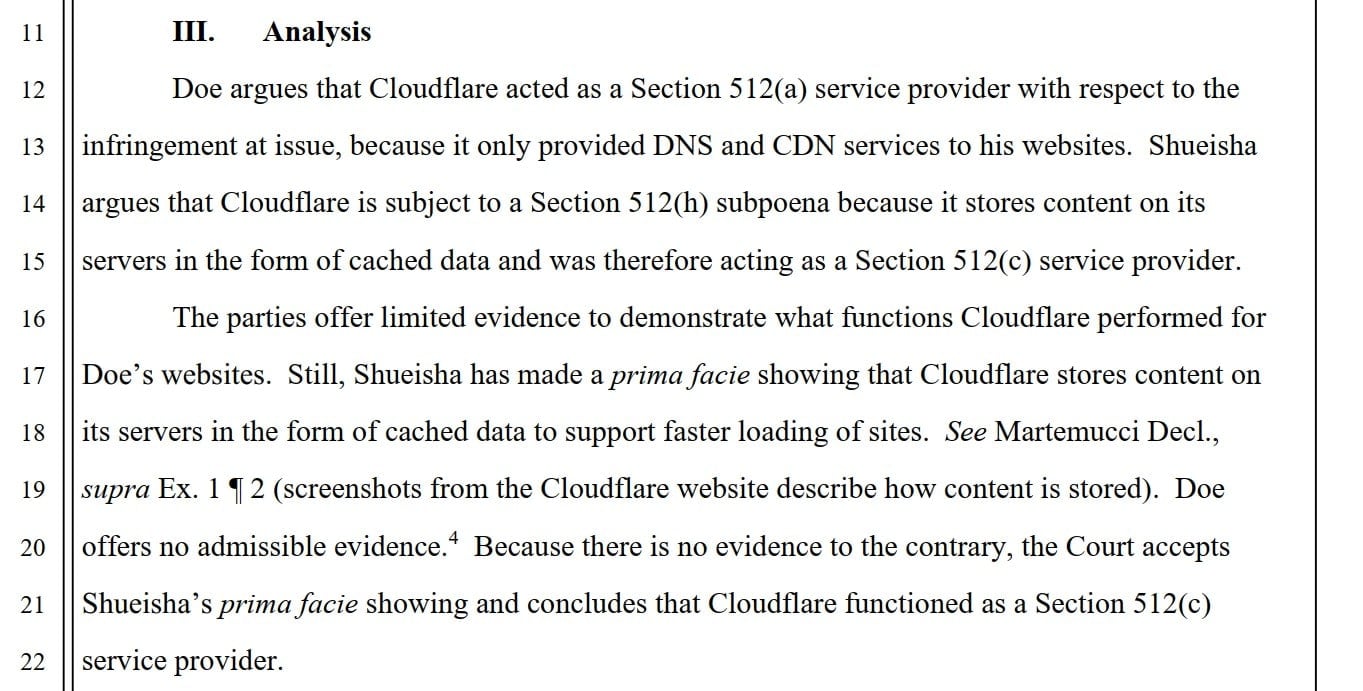 To combat online piracy, copyright holders frequently use DMCA subpoenas to compel service providers to unmask alleged infringers.
To combat online piracy, copyright holders frequently use DMCA subpoenas to compel service providers to unmask alleged infringers.
Because these requests don’t require a judge’s approval and are typically signed off by a court clerk, they offer a swift and powerful tool to identify pirates.
In recent years, Internet infrastructure company Cloudflare has been targeted with DMCA subpoenas dozens of times. While the personal information it discloses may not always be accurate, it has been instrumental in several enforcement actions.
Shueisha vs. Mangajikan
In some instances, the mere threat of potential legal trouble may already be sufficient. This was the case a few months ago when the massively popular manga piracy site Mangajikan.com shut its doors days after publisher Shueisha obtained a DMCA subpoena directed at Cloudflare.
While Shueisha must have been pleased with the quick result, the publisher still didn’t know who was running the site. Shortly after Shueisha obtained the DMCA subpoena, the anonymous operator of mangajikan.com and related domain alammanga.com, submitted a motion to quash at a California federal court.
Anonymous Operator Relies on Cox Precedent
The ‘John Doe’ operator’s motion to quash cited several reasons why disclosure of their personal data should be denied. This includes the Cox precedent confirmed by the Court of Appeals in August, which held that DMCA subpoenas don’t apply to Section 512(a) service providers, i.e mere conduits that simply pass on bytes.
“Cloudflare is not a proper DMCA target in this instance because here, it only provides DNS and CDN services to the Domains and cannot remove or disable access to content,” Doe’s attorney explained.
“[F]ederal courts have repeatedly held that DMCA subpoenas cannot compel disclosure from service providers acting solely as conduits or CDNs, as they do not host or control the allegedly infringing content.”
The non-hosting argument appears to align with Cloudflare’s own policy. The company does not disable access to allegedly infringing URLs that use its CDN service because it doesn’t host the content permanently. Instead, Cloudflare forwards DMCA notices to the affected subscribers.
Shueisha Counters: Caching is Key
In its response, Shueisha pointed out that since Cloudflare temporarily stores the contested materials in its cache and then serves the content to the site’s visitors, Cloudflare qualifies as a Section 512(c) service.
The manga publisher backed up its claim by simply submitting a screenshot from Cloudflare’s own website describing how its cache “stores copies of frequently accessed content.”
“Cloudflare does, in fact, store content on its servers in the form of cached data which allows for faster loading of sites. Courts, particularly in this district, routinely issue DMCA subpoenas to Cloudflare that Cloudflare does not move to quash,” Shueisha argued.

Shueisha further argued that the pirate site’s operator failed to cite a single case in which Cloudflare was seen as an “improper recipient” of a DMCA subpoena in this context.
Jurisdiction, Fair Use, and Retaliation
In addition to the disagreement over the correct application of a DMCA subpoena, the operator argued that a U.S. court is not the right venue. In a declaration, they explained that Mangajikan.com allegedly blocked U.S. visitors, had a non-commercial nature, and has already been shut down.
The underlying DMCA notice is also invalid, they argued, because it didn’t properly identify the infringing content and failed to take fair use into account.
Finally, the John Doe operator asked the court for a protective order to shield his identity, noting that he feared retaliation since Shueisha had released personal details of adversaries in the past.
These additional arguments were contested by Shueisha. Crucially, the publisher said that since their declaration was submitted anonymously, the operator can’t be held to the standard of “penalty of perjury” so should be ignored.
Other defenses, such as fair use claims, do not need to be considered for a motion to quash, the publisher added.
Court: Caching Qualifies for a DMCA Subpoena
After reviewing the filings from both sides, the court ultimately sided with the manga publisher.
Firstly, Judge Gonzalez Rogers ruled that Shueisha sufficiently identified a copyrighted work. In addition, its takedown notice included the required statement of good faith belief that Mangajikan’s use was unauthorized.
Finally, the court found that Cloudflare is not a mere conduit service provider under Section 512(a), as it stores cached content. Siding with Shueisha’s argument that Cloudflare functioned as a Section 512(c) service provider, the Court confirmed that a DMCA subpoena can be used.

“The parties offer limited evidence to demonstrate what functions Cloudflare performed for Doe’s websites. Still, Shueisha has made a prima facie showing that Cloudflare stores content on its servers in the form of cached data to support faster loading of sites.”
“Because there is no evidence to the contrary, the Court accepts Shueisha’s prima facie showing and concludes that Cloudflare functioned as a Section 512(c) service provider,” Judge Gonzalez Rogers added.
DMCA: A, B, C…
Interestingly, the order didn’t mention Section 512(b), which specifically references caching. That likely wouldn’t have changed the outcome, however, as DMCA subpoenas also apply to these services.
Cloudflare likely sees itself as a caching service in relation to its CDN services, as it typically does not remove cached content, unlike content that it hosts permanently. Therefore, the court’s ruling here should be seen as limited to this particular case.
For Mangajikan’s operator, the ruling effectively means that their battle for anonymity is over. However, the court did order the parties to create a protective order, which will limit how Shueisha can use Doe’s identity, particularly in public.
—
A copy of U.S. District Court Judge Yvonne Gonzalez Rogers’ order is available here (pdf)
From: TF, for the latest news on copyright battles, piracy and more.
Powered by WPeMatico
